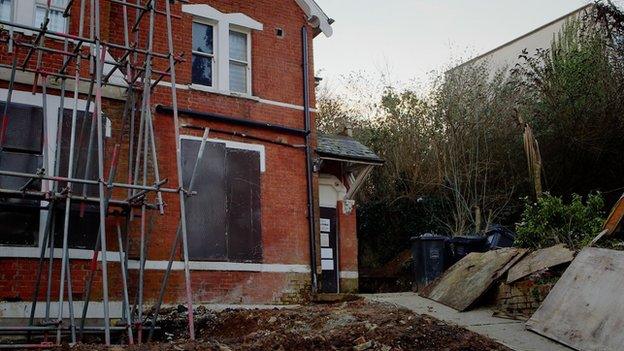Why is the UK's housing benefit bill so high?
- Published
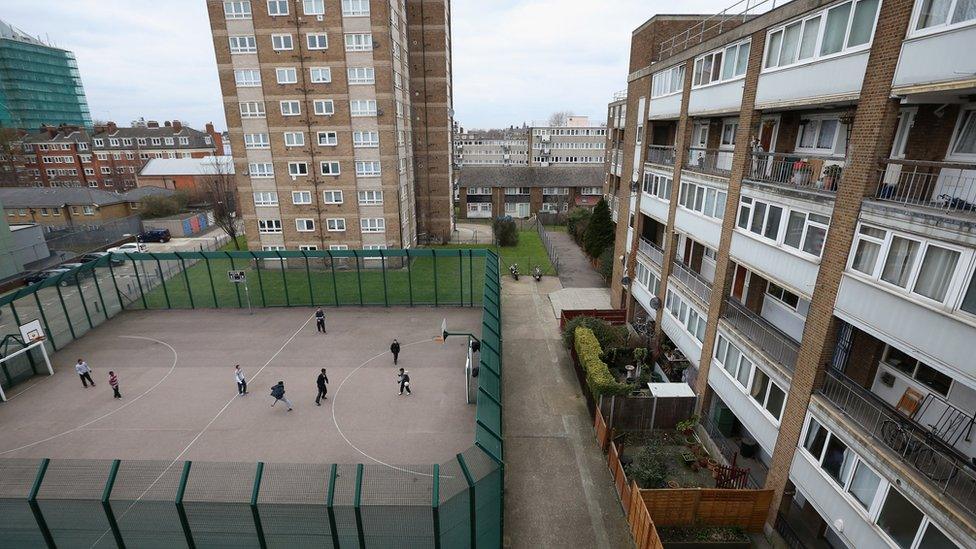
The UK currently spends billions of pounds a year on housing benefit. Paul Johnson, director of the Institute for Fiscal Studies, explains the history of the payments and how government funding for house-building has gradually moved into subsidies for rents, especially to private landlords.
What is housing benefit?
It's a means-tested benefit paid to people on low incomes. For tenants in council or housing association properties it will usually cover their whole rent if they have no other income. For many of those in the private sector it will not pay the whole rent even if they have no other income. Housing benefit is withdrawn as income rises, but an increasing number of people in work claim at least some housing benefit.
Why do we have it?

Sir William Beveridge was the moving force behind today's welfare system
We don't have benefits explicitly to pay for any other item of spending - a clothes benefit, or a food benefit for example. But the level of rents is so variable around the country and between households that a special benefit to help pay rents has been in place since at least the 1930s. A form of housing benefit was part of Beveridge's prescription in his famous report., external He referred to "the problem of rent".
How expensive is it?
Very. At over £25 billion it is one of the biggest and fastest-growing parts of the welfare bill. That is a huge sum of money: more than we spend on the police, roads and buying military equipment combined. And the amount we spend has been growing very fast over the last three decades as both rents and the number of renters have risen.
I thought the government had cut it
The coalition government did introduce a number of cuts to the generosity of the housing benefit system. The most high profile, but by no means the biggest was the so called "bedroom tax" (properly known as the social sector size criteria) which reduced the amount of benefit social tenants could claim if they lived in a property deemed too big for them given the size of their family. Similar criteria have operated in the private sector for a long time. There was less publicity about the biggest cuts, which were to benefits for tenants in the private sector, essentially limiting the amount of rent in respect of which housing benefit could be paid.
So that's reduced spending?
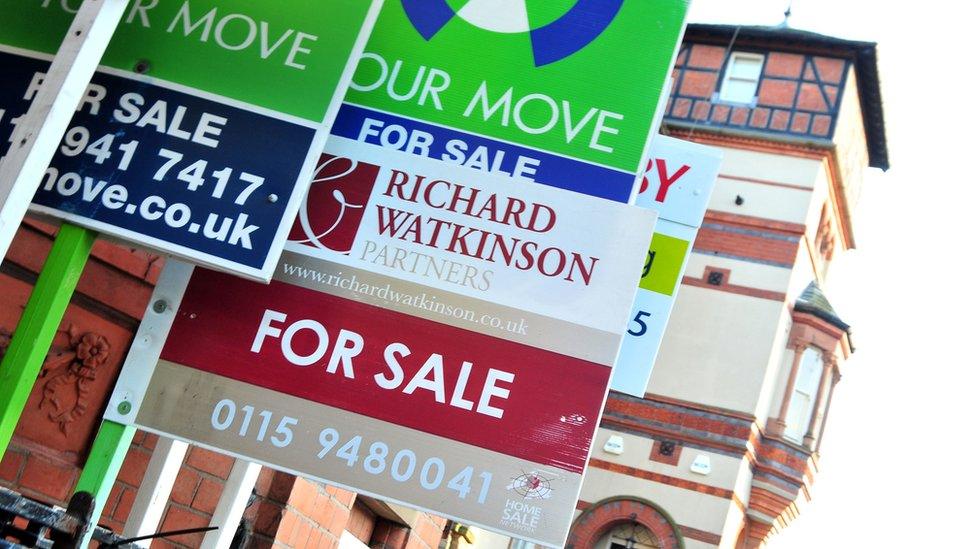
Rising house prices have led to increases in the cost of housing benefit
No. The cuts mean that spending is more than £2 billion less than it would otherwise have been but total spending actually rose over the period after 2010 when the cuts were introduced. That's because rents rose, the number of renters rose, and earnings fell.
Why has spending risen so much over the longer term?
Two big things have happened. First the government has almost stopped building new council houses and has reduced the subsidy on the rents that social tenants pay. Since a lot of council tenants are poor, this has just led to more being spent on housing benefit. Meanwhile in the private sector, rents have risen quickly and a lot more people are renting rather than becoming owner-occupiers. For example, the proportion of people in their twenties who are owner-occupiers has halved in the last 20 years.
Isn't the problem that we pay the rents for people to live in Chelsea? Isn't that just unfair on the rest of us who can't afford to live there?
That's a big dilemma. Yes, you can get housing benefit to help you live in very expensive areas, though the amount you can claim has been cut back recently. And there is still a lot of social housing in some of these very expensive areas. Critics say the problem is that if it was left entirely to the market we could end up with "ghettoization" and parts of the country, and especially parts of our cities, where only the rich or only the poor lived. Many argue that this would make for an unhealthy, socially destructive balance. And in any case there are lots of low-paid jobs that need to be done in expensive areas and if we need the workers perhaps we should be willing to help them live near their work.
So why have rents risen so much?
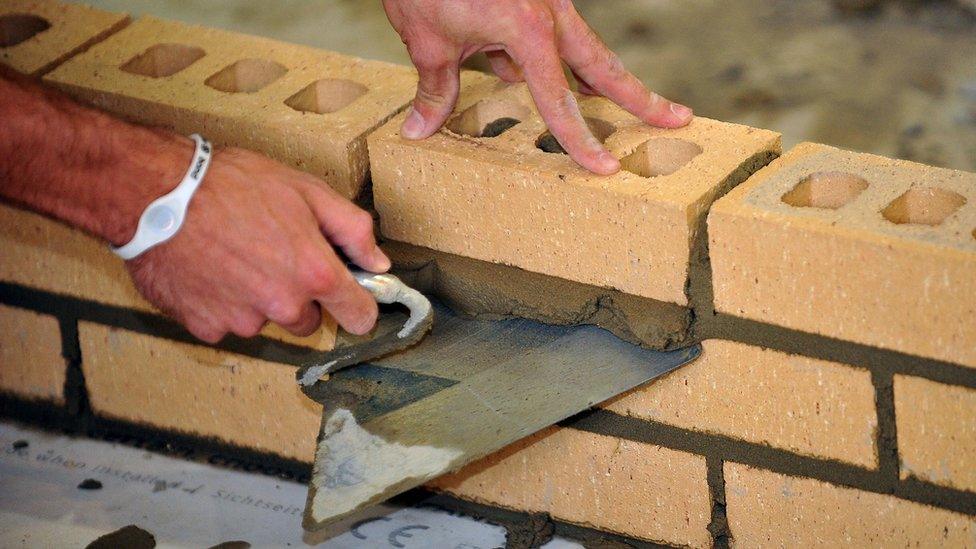
Could building more houses be the way to reduce the housing benefit bill?
That's the $6 million question. Of course it's closely related to the big increases in house prices. That in turn has been driven in part by the lack of house building. In the 1950s and 1960s we were building 200,000 or even 300,000 new homes every year. We haven't managed that for 30 years or more now, and only built 125,000 last year. Most of the difference is explained by the collapse in building by the state. Very few new council houses have been built.
It's not just that though. We also have a tax system which encourages owner-occupiers to stay in their current properties even when they no longer need all the bedrooms. This exacerbates our tendency to see housing as an investment as well as a home. And it means that even if we do have enough bedrooms to go round they are effectively being hoarded by those lucky enough to be owner occupiers.
What should we do?
In the end the problem is with the whole of housing policy, not just with the housing benefit system. We urgently need to build more houses, public and private. But we also need a radical overhaul of the way we tax housing and approach housing policy more generally.
Paul Johnson is Director of the Institute of Fiscal Studies, external. Analysis: What's Housing Benefit for? is on Radio 4 at 20.30 BST on Monday 21 September and 21.30 BST on Sunday 27 September.
- Published2 July 2015
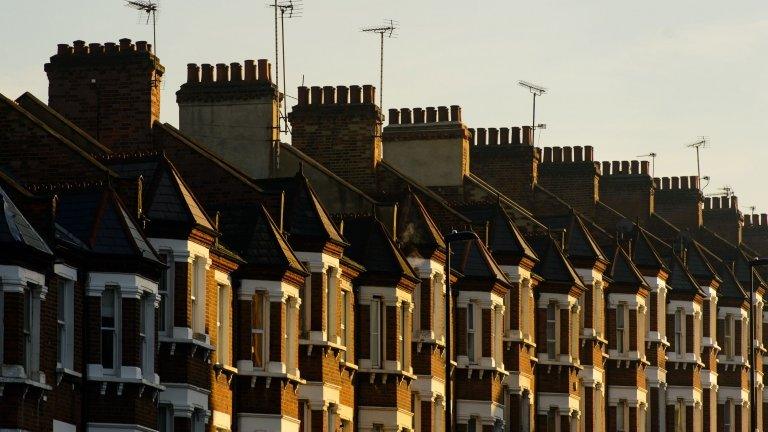
- Published20 April 2015
